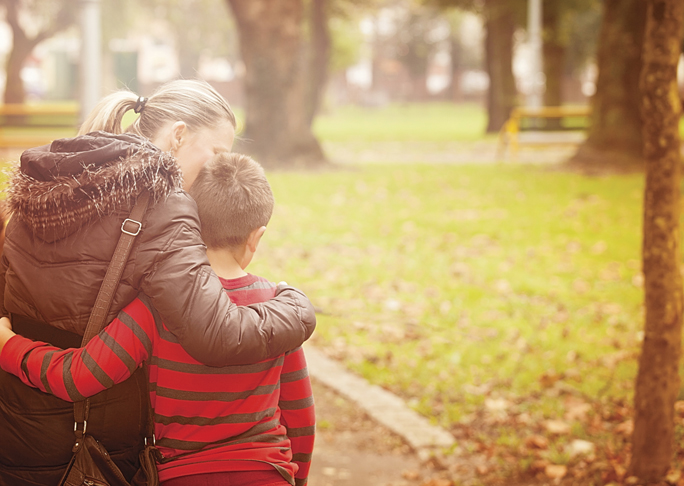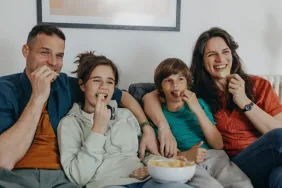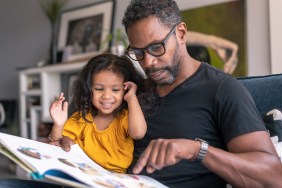Then I got hit with a truth bomb that was about to blow my world apart.
A man was seized, tortured and nailed to a wooden cross. He had a crown of thorns thrust upon his head, and the blood coursing down his face was mingled with tears of agony, terror and grief. In between moans he cried out to his father to save him, but to no avail. He died a slow and extremely painful death while people threw stones and spat at him.
I was five years old. For a child raised on Sesame Street and Romper Room the realisation that the world could be terrifying and cruel came as a massive shock, and despite my obvious distress I was left to process all of this alone. This was the life of a child in the 1980s: Hey! Here’s a guy being mutilated and tortured. The world is not what you thought it was, kid. Shut up and deal.
Thankfully, we do things differently now and are much more aware of the need to deliver difficult truths in a sensitive and age-appropriate way. Blowing our kids’ minds with massive truth bombs is one of the less desirable aspects of parenting, and it’s never easy. No one wants to be the big bad Mum-or-Dadzilla who shatters innocent illusions and crushes tiny little spirits.
Here are three of the most difficult conversations we will ever have with our kids.
1. The death of a loved one
Whether it’s a family member, friend or a pet, the death of a loved one is one of those truly fraught conversations that no parent ever wishes to have with their children. In addition to a messy matrix of emotions like shock, dismay and raw grief, young children have next to no grasp of the concept of mortality, so you can also add total confusion to the mix. As a parent it can be heartbreaking to try and answer questions that simply cannot be answered: Where is Poppy? Why did he go away? Why doesn’t he come to visit me anymore? When is he coming back?
How do we even explain death, when we cannot know the unknown? It’s a subject that many adults aren’t able to comprehend, so it’s probably going to be one of those times where words fail. Stock up on tissues. You’re gonna need to hug this one out.
Related: The Conversation I Dreaded More Than the Sex Talk
- Stranger danger, sexual abuse and protective behaviours
Young kids see the world through eyes of wonder and awe. Other than being perennially on the lookout for the chance to scam a Kinder Surprise at the supermarket, there is no real sense of guile or distrust in them. One of the hardest conversations that you can ever have with your children is to break the awful news that there are people in the world who do bad things – and that some of those people do bad things to children. We warn them about strangers, but even more heartbreaking is that we also have to warn them of risks closer to home, in a way that doesn’t create excessive anxiety or distress.
It goes without saying that conversations about bodily autonomy and protective behaviours are an essential part of growing up, but it also necessitates one of the most core-shattering truth bombs of all: that the people they trust cannot always be trusted. And that hidden dangers lurk within a world that once felt safe.
Related: How to Teach Your Kids About Strangers – Without Using Crazy Scare Tactics
- Sex, babies and reproduction
Mummy, why don’t you have a penis? It’s one of those awkward questions that all parents dread, and it invariably comes at the most inconvenient times. For me, it came from my four year old while I was waiting in line for coffee and a muffin, and I could hear the snickers behind me as I sighed and braced myself for a lengthy discussion about my bewildering lack of doodle. The sex talk has varying degrees of difficulty depending on your child’s age and level of curiosity: it can range from twee-yet-vague statements like “Daddy planted a seed during special cuddles” to rather more graphic descriptions of body parts, intercourse and birth.
Either way, it’s one of those conversations that snowballs into an avalanche of increasingly more difficult questions, and it’s one best had well after your first coffee of the day. And preferably without the line of bemused customers behind you at Muffin Break.
***
For the record, I’ve yet to tell my six year old the story of Jesus’ crucifixion, because I just can’t bring myself to crush his sweet young spirit with awareness of the cruelty and violence that humans are capable of. I truly dread the day I ever need to have that conversation with him.
What conversations do you dread the most?
More on talking with our kids:
- Teaching Kids the Art of Conversation
- How to Talk to Your Kids About Scary Things
- How to Talk to Your Kids About Same-Sex Marriage & Gay Parents
Image: Getty








